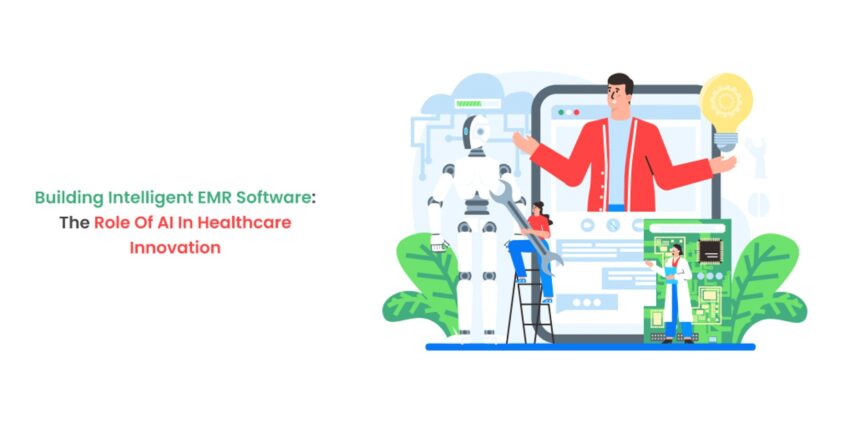Introduction:
Now as the market continues to change in a fast-paced healthcare industry, the use of artificial intelligence in EMR software is transforming the way patients are cared for. Healthcare providers can use AI to optimize their workflows, optimize decision-making, and ultimately, raise the quality of their services. This blog post examines how smart EMR solutions are defining the healthcare revolution and revolutionizing patient-care experiences.
Understanding EMR Software
This is a digital record-keeping system that has patient data at the center of the healthcare provider’s practice supplementing workflows. EMR Software improves the effectiveness of patient care by replacing paper records and providing accurate and easily available information for clinicians. It charts how these systems help to update and share data in real time across care teams to advance patient care and enable better decision-making. As such knowledge of EMR software is imperative in optimizing its effectiveness in the contemporary modern high-tech environment.
Key Features of Intelligent EMR Software
Smart EMR software programs are developed to raise the bar of patient care and facilitate the flow of healthcare systems using diverse tools. Certainly, one of the most striking vernaculars of the strength is the automation of data input; which eradicates much time spent on documentation by healthcare personnel so that they can attend to their clients more. This feature reduces human errors and ensures that updated patient records are kept all the time.
The second important tool is analyzing past patient data for possible future health problems. This way, clinicians can easily spot patients who are at risk and therefore patients who could be prevented from getting diseases or sicknesses that their bodies may be building up to experience. Also, natural language processing is applied to improve clinical documentation and helps providers speak into their notes. This not only saves time but can also enhance the characteristics of the patent record.
Another aspect that remains critically important in smart EMR Software Solution is interoperability. The interoperability of data in different healthcare systems makes the decentralized systems work in concert and guarantees that the involved caregivers have a full view of the patient’s records.
Additionally, these solutions offer patient participation instruments, including patient and client accounts, appointment calendars, and message boards. When integrated, these features make intelligent EMR software solutions revolutionize healthcare delivery to improve the patient’s experience.
Challenges in Implementing AI in EMR
AI integration into EMR software solutions brings some issues that must be addressed to reap the benefits in healthcare organizations. Here are some key hurdles:
1. Data Privacy and Security Concerns
Because EMR systems contain patient-identifiable information, data security and privacy are of great importance. The inclusion of AI in these tasks may make these tasks even more difficult because algorithms rely on large amounts of data to operate. As much delicate data is stored and processed, securing the organizations must also be of high priority for compliance with legislation like HIPAA.
2. Integration with Existing Systems
A lot of clinicians require EMR legacy software systems which may not necessarily support other modern AI applications. When bringing AI into organizations it can be difficult and expensive to integrate with the existing systems because there may be major changes needed to adopt into the current structures.
3. Resistance to Change
Some of the challenges could include; Another key factor may be the concern regarding self-employment of their jobs through the systems or may be reluctance to embrace the new change through adoption of new technology. Mitigating these fears is very vital as far as adoption is concerned and this can only be done through education and training.
4. Data Quality Issues
One of the biggest promises made by AI algorithms is that they work based on high-quality data. They found that incorrect or missing data in EMR systems could negatively impact the performance of the integrated AI algorithms and recommended proper data dictionary implementation to maintain uniform data input measures.
Conclusion:
To sum up, it is possible to note that introducing the idea of AI in the creation of effective EMR software solutions is revolutionizing the sphere of healthcare. By optimizing data handling, increasing patient health, and increasing efficiency, AI-assisted Electronic Medical Record Systems are changing the direction of how care is delivered. That is why this technology is helpful not only for clinicians but also for patients and progressively contributes to extensive healthcare reform for the greatest benefit of all concerned parties.
